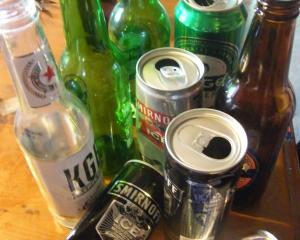
University of Otago (Wellington) Department of Public Health researcher Prof Nick Wilson and independent researcher Dr John Horrocks have laid out a series of measures the Government could implement, to rid the country of diesel cars, utes and vans which are significant contributors to climate change.
Prof Wilson said although diesels had lower fuel consumption than petrol vehicles, each litre of diesel accounted for more CO2 emissions than a litre of petrol.
He said later model diesels were fitted with catalytic converters to reduce emissions and had filters to control the release of hazardous fine particles, but older diesels did not meet New Zealand’s present emission standards, which are far less stringent than those in other OECD countries.
He said a "scrappage" scheme for older diesels would prevent New Zealand becoming a "dumping ground" for light diesel vehicles from other countries.
"Financial incentives to scrap older vehicles could speed up their withdrawal from use, as well as being an equitable solution for lower-income families, who could find it difficult to replace their vehicles."
Dr Horrocks said another initiative included a ban on any marketing of light diesel vehicles that did not meet the latest European emissions standards, and forcing car and ute dealerships to provide information about the fine particles and oxides of emissions of the vehicles.
Warrant of fitness inspections could also include checks of emission control devices on light diesels to ensure they were operating as designed, he said.
"A more radical suggestion would be to bring forward the Climate Change Commission’s proposed end date of 2035 for imports of internal combustion light vehicles to 2025."
Changing public perceptions about the value of large diesel vehicles, such as twin-cab utes, would also be key to achieving change.
"Light diesel vehicles have enjoyed years of heavy promotion, based very much on a psychological aura of dominance and outright aggression.
"Marketing like this is at odds with the transition to a low-emissions economy."
He believed promotion of the vehicles could be limited to places they are sold, and restricted to the vehicle specifications.
The two said air pollution from diesel-powered vehicles was causing substantial harm to New Zealanders’ health.
So they had recommended the Government produce public information about the health risks of diesel emissions, and conduct further monitoring of hazardous diesel emissions throughout the country, particularly of fine particle pollution.
Comments
"...would prevent New Zealand becoming a "dumping ground" for light diesel vehicles from other countries...."
Like what is happening in the used EV market, where we are importing used EV's that have reduced battery capacity. In a few years time NZ will have it's own EV junk yards, just like we are seeing overseas. With EV's with dead batteries, too costly to re-power and worthless.
Given that "diesels had lower fuel consumption than petrol vehicles, each litre of diesel accounted for more CO2 emissions than a litre of petrol", then surely they would balance out, for the same distance travelled?
I agree with the suggestions re the marketing of large "urban assault" vehicles, however.
NZ is the dumping ground for all sorts of vehicles. Look at all the small cars with a safety rating of 1 out of 5 that NZTA has allowed to be imported, then spend large amounts in advertising not to buy them!
Get those dirty diesels off the road...quick everybody buy a leaf or a tesla or something electric! (60% of electricity generated in nz is from fossil fuels) Go the clean green coal powered electric cars!












